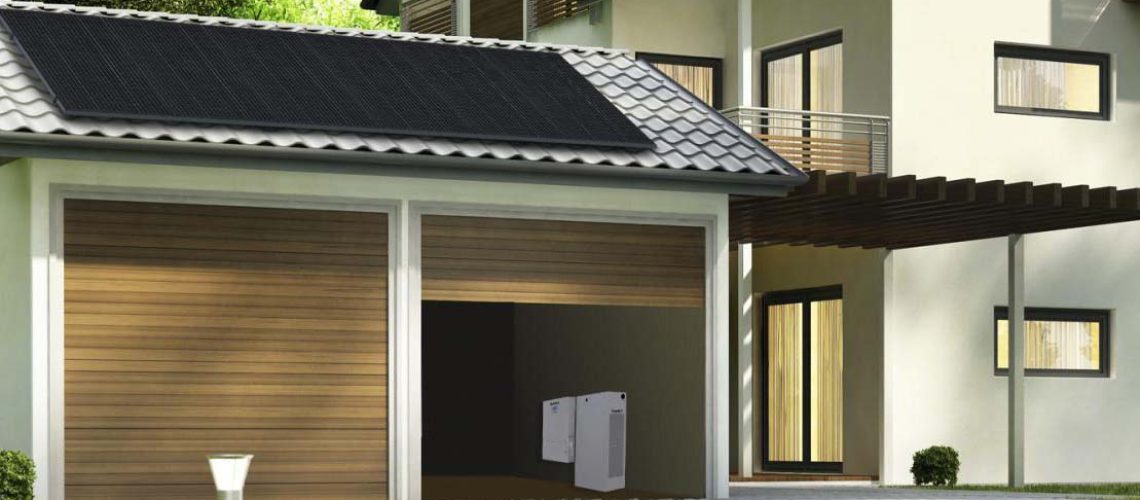The study surveyed homeowners as well as solar professionals to learn what incentivized homeowners to go solar, their interest in energy storage, challenges faced by solar professionals and the myths that still hang over the solar industry.
The overall residential solar market continues to grow at a rapid pace. Falling prices combined with rising utility rates has made solar a good investment, and homeowners have taken notice, according to a recent study released by Aurora Solar.
Aurora Solar, established in 2013, offers a cloud-based platform that uses Light Detection and Ranging (LIDAR) technology and machine learning algorithms to streamline the process of selling solar. The company recently reached the milestone of having designed 10 million solar sites.
According to Wood Mackenzie, Aurora is used by 80% of the top 75 installers in the U.S., with 10 million solar sites logged and over 7,000 customers creating more than 100,000 projects per week.
Beginning with its own customers, Aurora has seen impressive growth of nearly 40% year over year across the U.S., which corroborates data from the Solar Energy Industries Association’s Solar Market Insight Report that found 2022 to be a record year for solar with 6 GW (DC) installations, representing 40% over 2021.
With the solar market made up of both homeowners and solar professionals, Aurora looked at data from both groups. Partnering with Dynata, a first-data research company, they surveyed 1,000 homeowners about concerns, intentions and about solar installers. They then surveyed 898 solar professionals to learn what is driving their businesses, what they expect in the future, what they need to succeed and what trends they are seeing.
Some of the top solar trends driving the U.S. residential solar market in 2023 include heightened interest in going solar, expressed need for energy storage, and a surge in EV owners adopting solar.
The study breaks down the reasons behind these trends. The Inflation Reduction Act of 2022 brought an extension of the investment tax credit for solar through 2032, restoring it back to its original 30%. Aurora notes that this has eliminated uncertainty for potential solar adopters, and it has given homeowners time to consider solar and not feel pressured into making the investment immediately.
With energy prices are outpacing inflation, the cost of energy was also found to be a motivating factor. Of survey respondents, expect prices to continue to rise, and 48% are concerned about power outages due to weather events.
Homeowners respond
First off, the study found that one in 10 of homeowners surveyed had gone solar in the past year. Other data from homeowners:
- Nearly 77% of the survey’s respondents either have solar or are interested in purchasing it
- 55% of millennials believe financing options are important
- 40% of millennials reported having solar on their homes
- 64% of baby boomers said high system and installation prices are their main concern
- 43% of Gen Z said being more sustainable was their biggest concern
Solar pros respond
Of the solar professionals surveyed, 70% noted a growth in business. Other notable data from solar pros:
- 91% of solar pros have seen increased interest from homeowners in the past year
- 83% have seen increased interest in energy storage paired with solar
- 79% said EV adoption led to their interest in solar
- 45% said that the Inflation Reduction Act stimulated their interest
Obstacles to adoption
With all the interest in going solar, the study found that there are still some myths around going solar, as well as legitimate concerns.
Myths
- 34% believe that solar panels are less efficient in the winter
- 21% believe that solar panels require a lot of maintenance
- 17% believe that solar panels make it more difficult to sell the home
- 27% believe the process of installing solar is lengthy and difficult
Legitimate concerns
The study found that half of the homeowners surveyed find it hard to know which contractors to trust. And contractor’s outreach practices were considered “spammy” by 27%. As a result, 38% feel more comfortable working with a national-level contractor. 28% said they would only trust word-of-mouth recommendations.
Challenges for solar pros
Difficulty in finding workers was the reason given by 17% of solar pros as an obstacle to ramping up to meet the demand. Other challenges cited:
- 28% pointed to supply chain issues
- 22% indicated that homeowners’ reluctance to commit to quotes was a negative
- 10% said they were facing cashflow issues within their business



